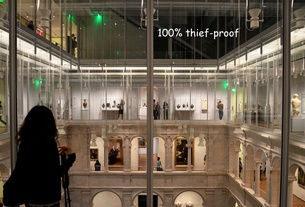{shortcode-b018619ad3f281cb460062209a675fd1a0d73f9e}
When the Harvard Union for Clerical and Technical Workers won recognition in 1988 after 17 years of efforts, many were uncertain about what relationship the University would have with the new union.
The administration of then-University President Derek C. Bok had previously filed legal complaints questioning whether the original election by workers for the union was free and fair—something the National Labor Relations Board requires of such a process. When Harvard’s petitions were initially deemed invalid, Bok had an important decision to make—appeal the result to the NLRB or begin negotiating with the organizers.
Although Bok, who had previously taught labor law for over a decade, still contends there was a “technical case” to be made for pursuing an appeal, he decided against it after consultating a close friend and colleague. While the newly unionized crowd, largely composed of women, applauded what would appear to be their victory, uncertainty grew about how the union and its 3,600 constituents would be able to negotiate with the University.
Just one year later, HUCTW and the University would agree on a three-year contract that would be widely seen as mutually beneficial, with added benefits in terms of education, salary, and pension programs, among many other things.
During the negotiations, a powerful collection of experienced labor professors and intermediaries were able to form bonds with union leaders that many say successors have been unable to fully replicate. University representatives used creative means of negotiation and an “unusual” labor leader helped notch significant victories for Harvard workers.
Twenty-five years later, the nearly 4,800 members of HUCTW are still a force in University policy. Though recent years have seen the organization struggle to negotiate with the University, students, union workers, and faculty reminisced positively on their 1989 contract in what many deem to be one of the high points in HUCTW’s history.
CALM AFTER THE STORM
By 1988, the University had been contesting HUCTW’s formation for years, and workers believed the administration had conveyed an obvious sentiment against the union.
“Clearly [the University] didn’t want it,” said Maura Kilcommons, who has been part of the union since its inception. “They were trying to talk people out of it, but they weren’t breaking our thumbs or anything.”
After the NLRB affirmed the legitimacy of the union’s election, the University switched gears to work with
HUCTW rather than against it. Bok said over two decades later that he straightaway switched his focus towards forming a close bond with the union.
“We really, in other words, changed our policy... We were no longer contesting the union, but trying to develop as constructive a relationship as possible,” Bok explained.
HUCTW members, energized from their official formation and eager to begin negotiations, welcomed the University’s change of heart.
“For the University, I think there was also a little bit of a feeling, certainly not on the surface but kind of lurking in the background, of wanting to make amends for the fact that there had been some pretty aggressive and hostile anti-union campaigning,” said current HUCTW director Bill Jaeger.


